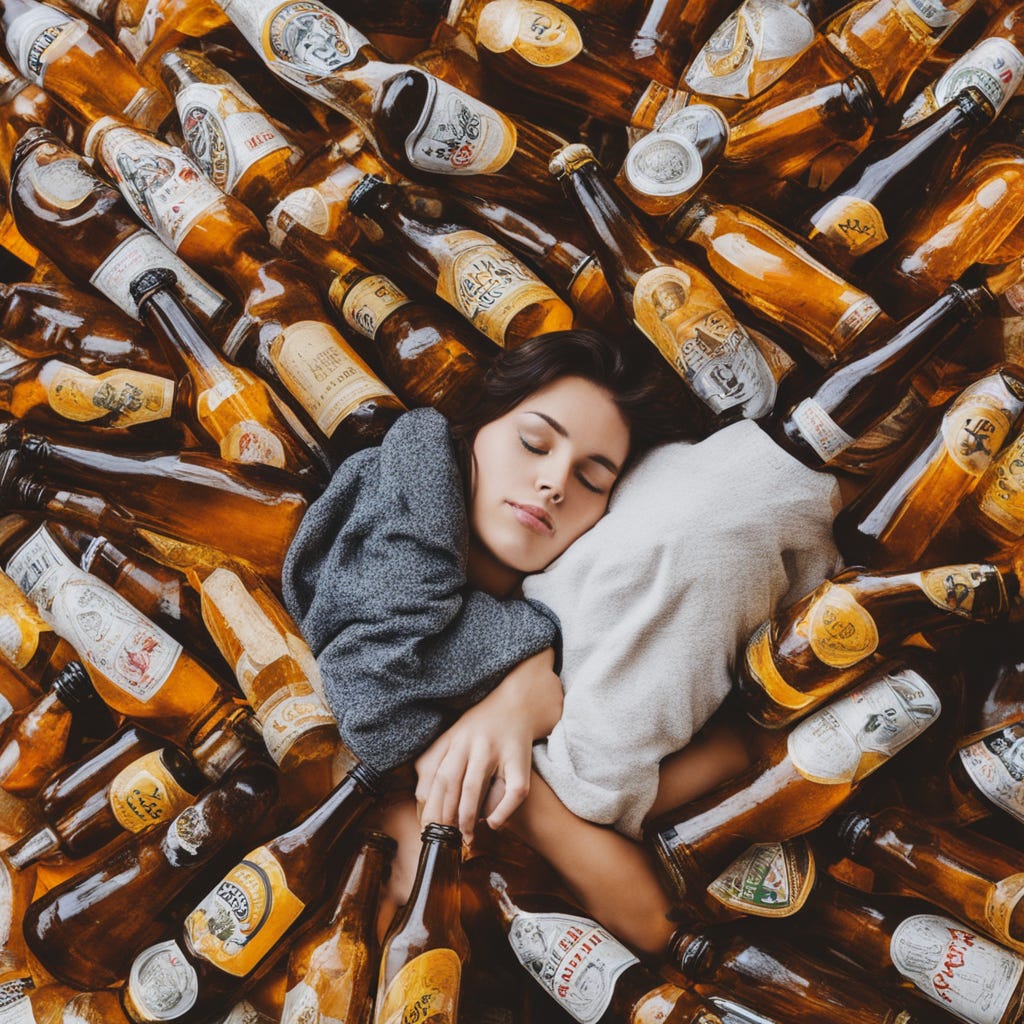How Alcohol Affects Your Sleep
The dangers of a nightcap — with some input from experts.
Greetings and Happy Holidays!
Before getting to today’s post, I have TWO “Black Friday Week” promos to announce.
First: now and through the end of November, all monthly and yearly Substack subscriptions are 20% off. If you want full access to all of my content (or want to give it as an early holiday gift), now’s the time.
Second: you can get the ePub or PDF version of my eBook “VO2 Max Essentials” for just $5 (formerly $15) on Gumroad. It’s also available on Amazon as a Kindle eBook, paperback, or hardcover (Amazon price).
Alcohol is ingrained in our culture.
While moderate alcohol intake has been associated with a lower risk for certain diseases, most experts agree that any amount of alcohol is harmful to the body and brain. Of course, the impact of a few drinks on long-term health is probably minor and, for some, worth the potential risks.
Many people tend to drink alcohol at night when most social occasions occur — some even use a nightcap to wind down, relax, and lull themselves off to sleep.
It’s a common misconception that alcohol helps you sleep. Yes, a drink or two will help you fall asleep faster and can certainly help you relax. Nothing tastes better after a long day than a glass of Malbec or a cold IPA (just me?) This thinking is why many people — especially those struggling with insomnia — attempt to self-medicate with alcohol before sleep. Not only is this counterproductive but, according to Dr. Ian Greenlund, a postdoctoral researcher at the Mayo Clinic (@IMGreenlundPhD on X), it can lead to a dangerous cycle of alcohol dependence and excessive alcohol consumption prior to sleep.
Furthermore, there’s no evidence that alcohol improves sleep; in fact, the opposite seems to be true, and the closer you consume alcohol in relation to your sleep, the more of a negative effect it can have. The data seem to support this: when I tag “alcohol” in my Oura ring app, it alerts me that “30% of users see a decline in their HRV during sleep after consuming alcohol” (nevertheless, I persist).
But why does alcohol ruin our sleep, and how bad can its effects really be? Furthermore, are there ways — other than abstention — to mitigate alcohol's slumber-robbing effects?
Your brain on alcohol
Alcohol is a depressant. Initially, a few drinks can induce feelings of relaxation and loosen our inhibitions. Alcohol does this by enhancing the action of a neurotransmitter known as gamma-aminobutyric acid (GABA) — which has inhibitory effects in the brain. However, as we metabolize our potable of choice, the effects of alcohol can shift toward having a stimulant effect — effects that are particularly disruptive to sleep.
I asked neuroscientist and host of “The Neuro Experience” podcast Dr. Louisa Nicola (@louisanicola_ on X) about the areas of sleep most impacted by alcohol. In higher quantities, alcohol disrupts the normal architecture of our sleep — architecture referring to the time we spend in the various sleep stages (i.e., light sleep, rapid eye movement or REM sleep, deep sleep). Specifically, alcohol reduces the time we spend in REM sleep, which is critical for forming memories and regulating our mood, among other functions.
Non-REM sleep, particularly slow-wave sleep, may increase initially (the result of less REM sleep) and then decrease with higher doses of alcohol consumption or chronic use. This may have to do with overall sleep duration decreasing as a result of heavy alcohol use.
In short, alcohol reduces sleep quantity and quality in a dose-dependent manner. Going to bed drunk potentiates these effects.
Alcohol and the cardiovascular system
While sleep is important for the overall function of our brain and body, our cardiovascular system also takes advantage of the initial hour of deep, non-REM sleep to relax and recuperate from the challenges of the previous day while preparing for the potential demands of the next one.




